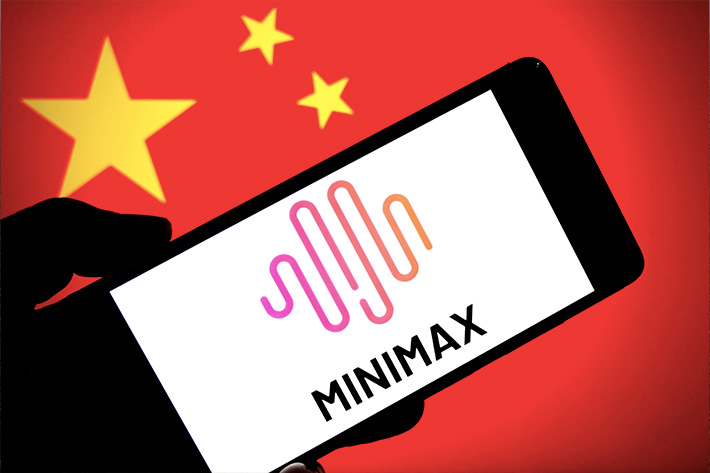Beijing’s confrontation with Japan over a remark about Taiwan has led to a series of retaliatory blows already hurting the Japanese economy.
But China’s sharp response to new Prime Minister Sanae Takaichi’s frank admission that a Chinese attack on Taiwan might trigger a collective self-defence response could also rebound on the People’s Republic.
China has released its ‘wolf warriors’ and ramped up trade pressure on Japan dramatically, warning its citizens to stay away from Japan, while reimposing a ban on Japanese seafood.
ALSO SEE: Powerful Nvidia Chip May Put Chinese Chipmakers in Choppy Waters
Japanese artists have had concerts in Beijing cancelled or postponed, and the scheduled release of at least two Japanese movies have been deferred on the mainland, supposedly because of public dissatisfaction over Takaichi’s remark.
Manufacturing giants such as Toyota and Sony also expect “direct blowback” from Beijing to affect their plants and supply chains, according to an analyst who spoke to Time magazine.
Chinese airlines cancelled flights on at least a dozen routes to popular destinations such as Kyoto and Osaka last week, according to a report by the South China Morning Post, which said Chinese airlines had received nearly half a million (491,000) booking cancellations for flights to Japan by November 17, which was close to a third of total bookings on those services.
“China was Japan’s largest source of inbound tourists in the first nine months of 2025, with about 7.49 million Chinese travellers visiting the country over that period, according to official data reported by Kyodo News last month,” it said.
A market researcher estimated the tourism impact could cost Japan anything from $500 million to $1.2 billion just in the weeks till the end of this year, although there are also indications that Japanese people working in areas that get a flood of tourists were actually relieved to get a chance to enjoy a reprieve from their busy workloads.
Bid to CPTPP pact ‘unthinkable’ right now
But there are also signs that China will pay a price for its latest display of petulance.
Its acts of economic coercion are almost certain to derail – or add years – to its bid to join the Comprehensive and Progressive Agreement for Trans-Pacific Partnership (CPTPP), which Beijing applied for in 2021.
The problem for Beijing is the CPTPP requires a very different approach to the ‘trade wars’ that China has launched against trading partners, such as Australia, several years ago.
Members of the trade grouping must meet three criteria known as the ‘Auckland Principles’ – preparedness to meet the pact’s high standards, a record of compliance and adhering to trade commitments, and concensus, with all existing members agreeing to on new countries wishing to join.
Nations must agree to non-discriminatory dialogue with other members and transparent decision-making, as noted by Australia’s ABC News, which said the latest flare-up has occurred as the 12 “CPTPP members were meeting in Melbourne to assess new membership bids.”
“On the eve of those discussions, one member state is being economically punished by the country seeking entry,” it said. “That creates a structural problem for China: CPTPP enlargement requires unanimity. And Japan holds a veto.”
Four other countries that applied to join the pact – Uruguay, Indonesia, the Philippines and the United Arab Emirates were all found to be in line with the group’s principles, according to a ministerial statement issued by Australia four days ago.
Uruguay looks like being the group’s next member and discussions on the other three countries will occur next year, it said.
The idea of Japan permitting China to join the CPTPP now is “almost unthinkable,” the ABC report said, not only because of its coercive trade actions, but other factors, such as its behaviour in the East China Sea.
Will China care? Not too much, perhaps, as it is already a member of the huge Regional Comprehensive Economic Partnership (RCEP) free-trade group set up five years ago. RCEP members account for just over a quarter of global merchandise trade.
The CPTPP is smaller, more select, and has higher standards. Its 11 original members accounted for $5.3 trillion in total trade (exports and imports) in 2020, which was about 15% of global trade, although those figures are likely to rise as more members join in the years ahead, when it could become a more significant entity.
Trump buoys Takaichi
Meanwhile, Donald Trump had positive words with the Japanese PM in a conversation overnight.
“Call me anytime” was the message Takaichi said she received from the US President on Tuesday in their first phone call since her diplomatic bust-up with China, Reuters reported.
Trump has not commented publicly on the dispute between Japan – a key US ally – and rival superpower China, a silence that analysts said may have worried some officials in Tokyo.
In brief remarks following her call with Trump on Tuesday, Takaichi sought to dispel any concerns that the US president did not have her back.
“President Trump mentioned that he and I are extremely good friends, and that I should call him anytime,” Takaichi told reporters, adding that it was Trump who took the initiative to reach out to her.
Trump explained to Takaichi the recent state of US-China relations, including his phone call with Chinese President Xi Jinping on Monday, she added.
Xi told Trump in that call that Taiwan’s “return to China” is a key part of Beijing’s vision for the world order, China’s official Xinhua news agency reported.
Trump touted progress in trade talks and said relations with China were “extremely strong” in a post on Truth Social following his call with Xi. But he made no mention of any discussions on Taiwan.
Japan was relieved that Trump arranged the call so soon after his discussion with Xi, a government official with knowledge of the talks said.
Meanwhile, Taiwan’s Premier Cho Jung-tai was happy to comment as well. He said on Tuesday that for the island’s 23 million people, a “return” to China is not an option.
- Jim Pollard
ALSO SEE:
US ‘Likely To Delay’ Chip Tariffs To Keep China Ties Calm
Taiwan Shoots Down US Push For 50-50 Chip Production Deal
Trade and Tariffs in Focus, as ASEAN Awaits Trump at KL Summit
Trump’s Tariffs Spurring a Rush for New Trade Agreements
Asian Nations Queuing up to Join World’s Biggest Free Trade Bloc
US Tariffs Could Cost Vietnam $25 Billion, UNDP Says
Indonesia Ratifies RCEP Trade Deal, Pact With South Korea
India plays it safe by avoiding RCEP
Huge Asian trade pact signed by leaders in virtual summit
























